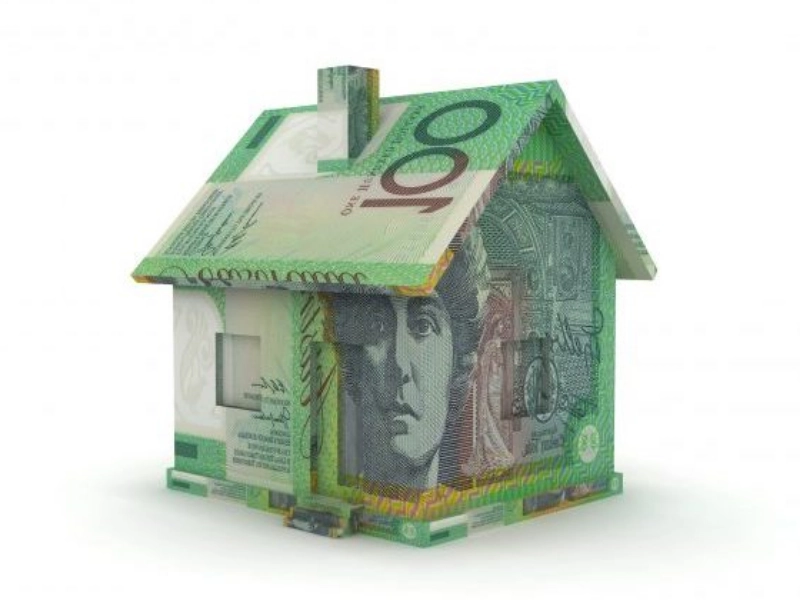Over the course of your loan, you may be able to save money by obtaining the best mortgage rate. The amount you pay can vary significantly by a few fractions of a percentage. Your interest rate is determined by a lender using variables such as your debt-to-income ratio and credit score. Mortgages with fixed rates or adjustable rates are your options.

 A down payment is a one-time contribution that lowers the amount you borrow and covers some expenses up front when applying for a mortgage. Your monthly payments will be lower the higher the down payment. You should think about how much money you have on hand and if you are eligible for a lending program with a lower down payment requirement.
When calculating how much of a down payment they require, lenders also take your debt-to-income ratio (DTI) and credit score into account. These elements aid in the evaluation of your risk as a buyer by lenders, which influences the conditions and price of your loan.
Your total cost is affected by the type of loan, the period, interest rates, and any discount points you pay. To locate the ideal loan feature combination for you, do some comparison shopping. Lenders might differ greatly in terms of terms, type of mortgage, and number of discount points offered. It can be easier to compare things like apples to apples if you have a solid understanding of these differences.
A down payment is a one-time contribution that lowers the amount you borrow and covers some expenses up front when applying for a mortgage. Your monthly payments will be lower the higher the down payment. You should think about how much money you have on hand and if you are eligible for a lending program with a lower down payment requirement.
When calculating how much of a down payment they require, lenders also take your debt-to-income ratio (DTI) and credit score into account. These elements aid in the evaluation of your risk as a buyer by lenders, which influences the conditions and price of your loan.
Your total cost is affected by the type of loan, the period, interest rates, and any discount points you pay. To locate the ideal loan feature combination for you, do some comparison shopping. Lenders might differ greatly in terms of terms, type of mortgage, and number of discount points offered. It can be easier to compare things like apples to apples if you have a solid understanding of these differences.
 Your monthly mortgage payments are divided into principle and interest by the payment schedules that lenders design. Usually, they employ a formula that accounts for various charges, such as loan origination fees, administrative costs, and the lender's profit margin, in addition to the current 10-year Treasury rate.
The payment plan outlines the monthly amount you will pay toward the loan balance until it is settled. The majority of traditional house loans have durations of 15 to 30 years. Certain lenders provide payment plans that are shorter than the mortgage term; they include adjustable-rate loans.
You can choose to reduce your mortgage rate and monthly payments by using mortgage points, sometimes referred to as discount points. Your interest rate is lowered by 0.25 percentage points for every point. Paying points can help you be approved for a mortgage if you're purchasing a property with a credit score that is too low. Just watch out not to go over budget. You can reduce your interest costs and accelerate the payoff of your mortgage by allocating your excess payments to the principal.
Your monthly mortgage payments are divided into principle and interest by the payment schedules that lenders design. Usually, they employ a formula that accounts for various charges, such as loan origination fees, administrative costs, and the lender's profit margin, in addition to the current 10-year Treasury rate.
The payment plan outlines the monthly amount you will pay toward the loan balance until it is settled. The majority of traditional house loans have durations of 15 to 30 years. Certain lenders provide payment plans that are shorter than the mortgage term; they include adjustable-rate loans.
You can choose to reduce your mortgage rate and monthly payments by using mortgage points, sometimes referred to as discount points. Your interest rate is lowered by 0.25 percentage points for every point. Paying points can help you be approved for a mortgage if you're purchasing a property with a credit score that is too low. Just watch out not to go over budget. You can reduce your interest costs and accelerate the payoff of your mortgage by allocating your excess payments to the principal.
 Borrowers who take out a mortgage must pay closing expenses, real estate taxes, and mortgage insurance up front. By charging interest on the loan, the lender also profits from it. The rate you'll be offered depends on a number of criteria, including your income, loan amount, and credit score. However, more general factors like inflation, stock market performance, and the economy also do so.
Throughout the course of your mortgage, which is typically 30 years, the interest you pay is computed. In addition to property taxes and homeowners insurance (or mortgage insurance for those with minimal down payments), each monthly payment includes principle and interest.
Although individual lenders determine their own rates according to their pricing strategies, they compete in an industry where rates are often comparable to those of their rivals. National mortgage rates are significantly impacted by the bond prices that lenders trade on the secondary market because they are the ones that sell the bonds to investors after packaging mortgage loans into mortgage-backed securities. The purchasing power of consumers is reduced by inflation, and lenders modify their rates accordingly.
Borrowers who take out a mortgage must pay closing expenses, real estate taxes, and mortgage insurance up front. By charging interest on the loan, the lender also profits from it. The rate you'll be offered depends on a number of criteria, including your income, loan amount, and credit score. However, more general factors like inflation, stock market performance, and the economy also do so.
Throughout the course of your mortgage, which is typically 30 years, the interest you pay is computed. In addition to property taxes and homeowners insurance (or mortgage insurance for those with minimal down payments), each monthly payment includes principle and interest.
Although individual lenders determine their own rates according to their pricing strategies, they compete in an industry where rates are often comparable to those of their rivals. National mortgage rates are significantly impacted by the bond prices that lenders trade on the secondary market because they are the ones that sell the bonds to investors after packaging mortgage loans into mortgage-backed securities. The purchasing power of consumers is reduced by inflation, and lenders modify their rates accordingly.